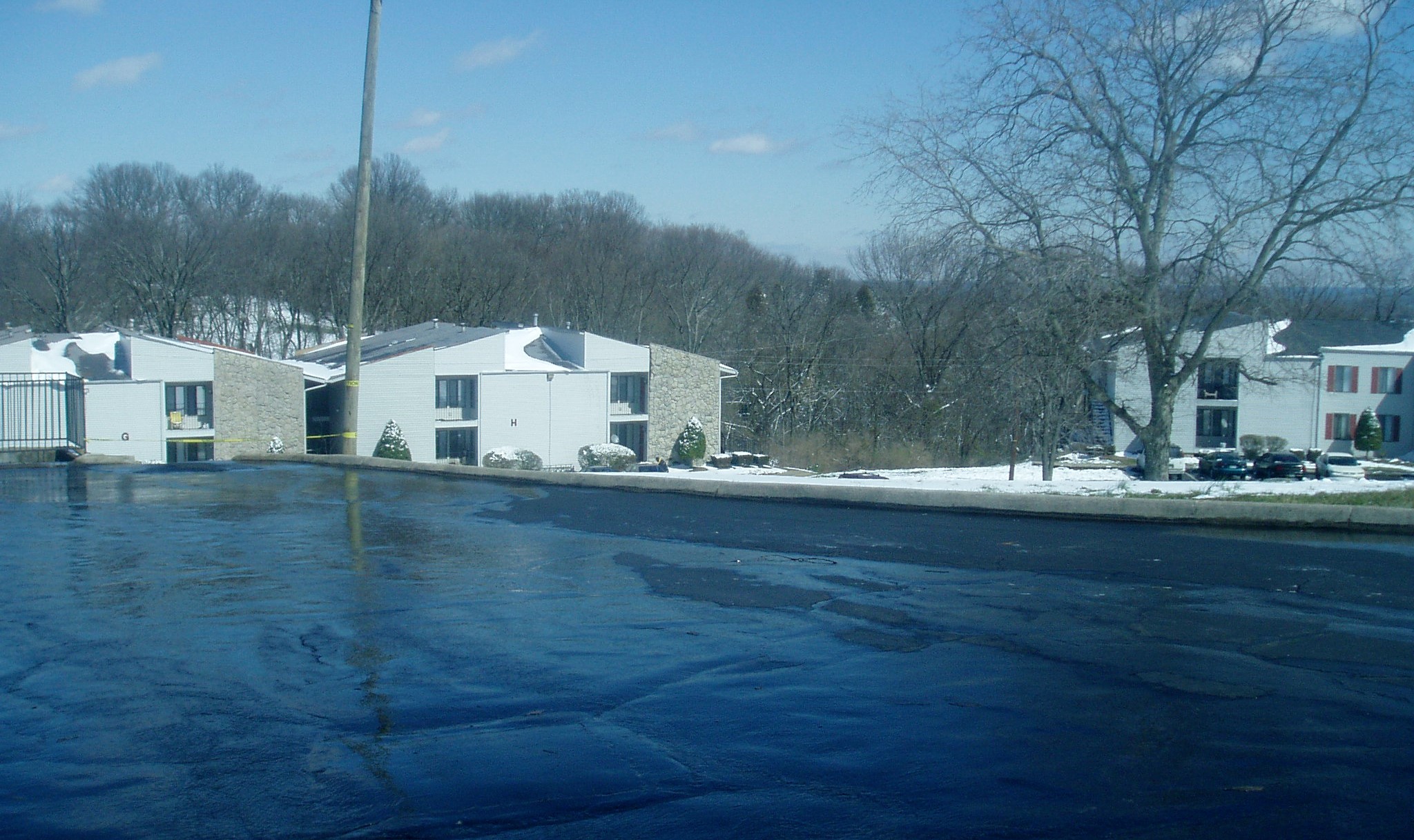Study Shows Warmer Winter Temperatures Linked to Increased Crime
Special Stories
19 Nov 2018 8:30 AM
[AGU] Milder winter weather increased regional crime rates in the United States over the past several decades, according to new research that suggests crime is related to temperature’s effect on daily activities.
A new study published in GeoHealth, a journal of the American Geophysical Union, finds U.S. crime rates are linked to warmer temperatures, and this relationship follows a seasonal pattern.
The findings support the theory that three major ingredients come together to bring about crime: a motivated offender, a suitable target, and the absence of a guardian to prevent a violation of the law. During certain seasons, namely winter, milder weather conditions increase the likelihood these three elements come together, and that violent and property crimes will take place, according to the new study. Unexpectedly, warmer summer temperatures were not linked with higher crime rates, although a study issued last year using Philadelphia data showed differing results.
The new research abates existing theories that hot temperatures drive aggressive motivation and behavior, according to the study’s authors. Instead, the new research suggests crime is related to the way climate alters people’s daily activities.
 [Melting snow at the apartment complex. From RecoilRick by CC BY 2.0]
“We were expecting to find a more consistent relationship between temperature and crime, but we weren’t really expecting that relationship to be changing over the course of the year,” said Ryan Harp, lead author of the study and a doctoral candidate in the Department of Atmospheric and Oceanic Sciences at the University of Colorado Boulder. “That ended up being a pretty big revelation for us.”
Understanding how climate affects crime rates could expand the boundaries of what scientists would consider to be a climate and health connection, Harp said.
“Ultimately, it’s a health impact,” he said. “The relationship between climate, human interaction, and crime that we’ve unveiled is something that will have an impact on people’s wellbeing.”
Regional climate affects human interaction
Previous studies have found a link between temperature and the incidence of crime, but none have looked at the relationship on a regional level and only some have controlled for underlying seasonal changes, allowing researchers to identify the potential underlying mechanism.
In the new study, Harp and his co-author conducted a systematic investigation into the relationship between large-scale climate variability and regionally-aggregated crime rates, using a technique that allowed them to group together detailed spatial data on seasonal temperature and crime rates from across the United States.
[Melting snow at the apartment complex. From RecoilRick by CC BY 2.0]
“We were expecting to find a more consistent relationship between temperature and crime, but we weren’t really expecting that relationship to be changing over the course of the year,” said Ryan Harp, lead author of the study and a doctoral candidate in the Department of Atmospheric and Oceanic Sciences at the University of Colorado Boulder. “That ended up being a pretty big revelation for us.”
Understanding how climate affects crime rates could expand the boundaries of what scientists would consider to be a climate and health connection, Harp said.
“Ultimately, it’s a health impact,” he said. “The relationship between climate, human interaction, and crime that we’ve unveiled is something that will have an impact on people’s wellbeing.”
Regional climate affects human interaction
Previous studies have found a link between temperature and the incidence of crime, but none have looked at the relationship on a regional level and only some have controlled for underlying seasonal changes, allowing researchers to identify the potential underlying mechanism.
In the new study, Harp and his co-author conducted a systematic investigation into the relationship between large-scale climate variability and regionally-aggregated crime rates, using a technique that allowed them to group together detailed spatial data on seasonal temperature and crime rates from across the United States.
 [From Creative Commons CC0]
They compared crime and climate data from the Federal Bureau of Investigation’s Uniform Crime Reporting (UCR) Program and the National Oceanic and Atmospheric Administration’s North American Regional Reanalysis (NARR). The data encompassed 16,000 cities across five defined US regions—Northeast, Southeast, South Central, West, and Midwest—from 1979 to 2016.
Their finding that violent crime is almost always more prevalent when temperatures are warmer in the winter months was especially notable in areas with the strongest winters, like the Midwest and Northeast, according to the researchers.
The new findings showing that increasing temperatures matter more in the winter than in the summer is interesting, said Marshall Burke, assistant professor of Earth System Science at Stanford University, who was not involved with the new study.
“The authors rightly suggest that this is more consistent with warmer temperatures altering people’s patterns of activity, like going outside more, than a physiological story about temperature and aggression,” he said.
Edited for WeatherNation by Meteorologist Mace Michaels
[From Creative Commons CC0]
They compared crime and climate data from the Federal Bureau of Investigation’s Uniform Crime Reporting (UCR) Program and the National Oceanic and Atmospheric Administration’s North American Regional Reanalysis (NARR). The data encompassed 16,000 cities across five defined US regions—Northeast, Southeast, South Central, West, and Midwest—from 1979 to 2016.
Their finding that violent crime is almost always more prevalent when temperatures are warmer in the winter months was especially notable in areas with the strongest winters, like the Midwest and Northeast, according to the researchers.
The new findings showing that increasing temperatures matter more in the winter than in the summer is interesting, said Marshall Burke, assistant professor of Earth System Science at Stanford University, who was not involved with the new study.
“The authors rightly suggest that this is more consistent with warmer temperatures altering people’s patterns of activity, like going outside more, than a physiological story about temperature and aggression,” he said.
Edited for WeatherNation by Meteorologist Mace Michaels
 [Melting snow at the apartment complex. From RecoilRick by CC BY 2.0]
“We were expecting to find a more consistent relationship between temperature and crime, but we weren’t really expecting that relationship to be changing over the course of the year,” said Ryan Harp, lead author of the study and a doctoral candidate in the Department of Atmospheric and Oceanic Sciences at the University of Colorado Boulder. “That ended up being a pretty big revelation for us.”
Understanding how climate affects crime rates could expand the boundaries of what scientists would consider to be a climate and health connection, Harp said.
“Ultimately, it’s a health impact,” he said. “The relationship between climate, human interaction, and crime that we’ve unveiled is something that will have an impact on people’s wellbeing.”
Regional climate affects human interaction
Previous studies have found a link between temperature and the incidence of crime, but none have looked at the relationship on a regional level and only some have controlled for underlying seasonal changes, allowing researchers to identify the potential underlying mechanism.
In the new study, Harp and his co-author conducted a systematic investigation into the relationship between large-scale climate variability and regionally-aggregated crime rates, using a technique that allowed them to group together detailed spatial data on seasonal temperature and crime rates from across the United States.
[Melting snow at the apartment complex. From RecoilRick by CC BY 2.0]
“We were expecting to find a more consistent relationship between temperature and crime, but we weren’t really expecting that relationship to be changing over the course of the year,” said Ryan Harp, lead author of the study and a doctoral candidate in the Department of Atmospheric and Oceanic Sciences at the University of Colorado Boulder. “That ended up being a pretty big revelation for us.”
Understanding how climate affects crime rates could expand the boundaries of what scientists would consider to be a climate and health connection, Harp said.
“Ultimately, it’s a health impact,” he said. “The relationship between climate, human interaction, and crime that we’ve unveiled is something that will have an impact on people’s wellbeing.”
Regional climate affects human interaction
Previous studies have found a link between temperature and the incidence of crime, but none have looked at the relationship on a regional level and only some have controlled for underlying seasonal changes, allowing researchers to identify the potential underlying mechanism.
In the new study, Harp and his co-author conducted a systematic investigation into the relationship between large-scale climate variability and regionally-aggregated crime rates, using a technique that allowed them to group together detailed spatial data on seasonal temperature and crime rates from across the United States.
 [From Creative Commons CC0]
They compared crime and climate data from the Federal Bureau of Investigation’s Uniform Crime Reporting (UCR) Program and the National Oceanic and Atmospheric Administration’s North American Regional Reanalysis (NARR). The data encompassed 16,000 cities across five defined US regions—Northeast, Southeast, South Central, West, and Midwest—from 1979 to 2016.
Their finding that violent crime is almost always more prevalent when temperatures are warmer in the winter months was especially notable in areas with the strongest winters, like the Midwest and Northeast, according to the researchers.
The new findings showing that increasing temperatures matter more in the winter than in the summer is interesting, said Marshall Burke, assistant professor of Earth System Science at Stanford University, who was not involved with the new study.
“The authors rightly suggest that this is more consistent with warmer temperatures altering people’s patterns of activity, like going outside more, than a physiological story about temperature and aggression,” he said.
Edited for WeatherNation by Meteorologist Mace Michaels
[From Creative Commons CC0]
They compared crime and climate data from the Federal Bureau of Investigation’s Uniform Crime Reporting (UCR) Program and the National Oceanic and Atmospheric Administration’s North American Regional Reanalysis (NARR). The data encompassed 16,000 cities across five defined US regions—Northeast, Southeast, South Central, West, and Midwest—from 1979 to 2016.
Their finding that violent crime is almost always more prevalent when temperatures are warmer in the winter months was especially notable in areas with the strongest winters, like the Midwest and Northeast, according to the researchers.
The new findings showing that increasing temperatures matter more in the winter than in the summer is interesting, said Marshall Burke, assistant professor of Earth System Science at Stanford University, who was not involved with the new study.
“The authors rightly suggest that this is more consistent with warmer temperatures altering people’s patterns of activity, like going outside more, than a physiological story about temperature and aggression,” he said.
Edited for WeatherNation by Meteorologist Mace MichaelsAll Weather News
More